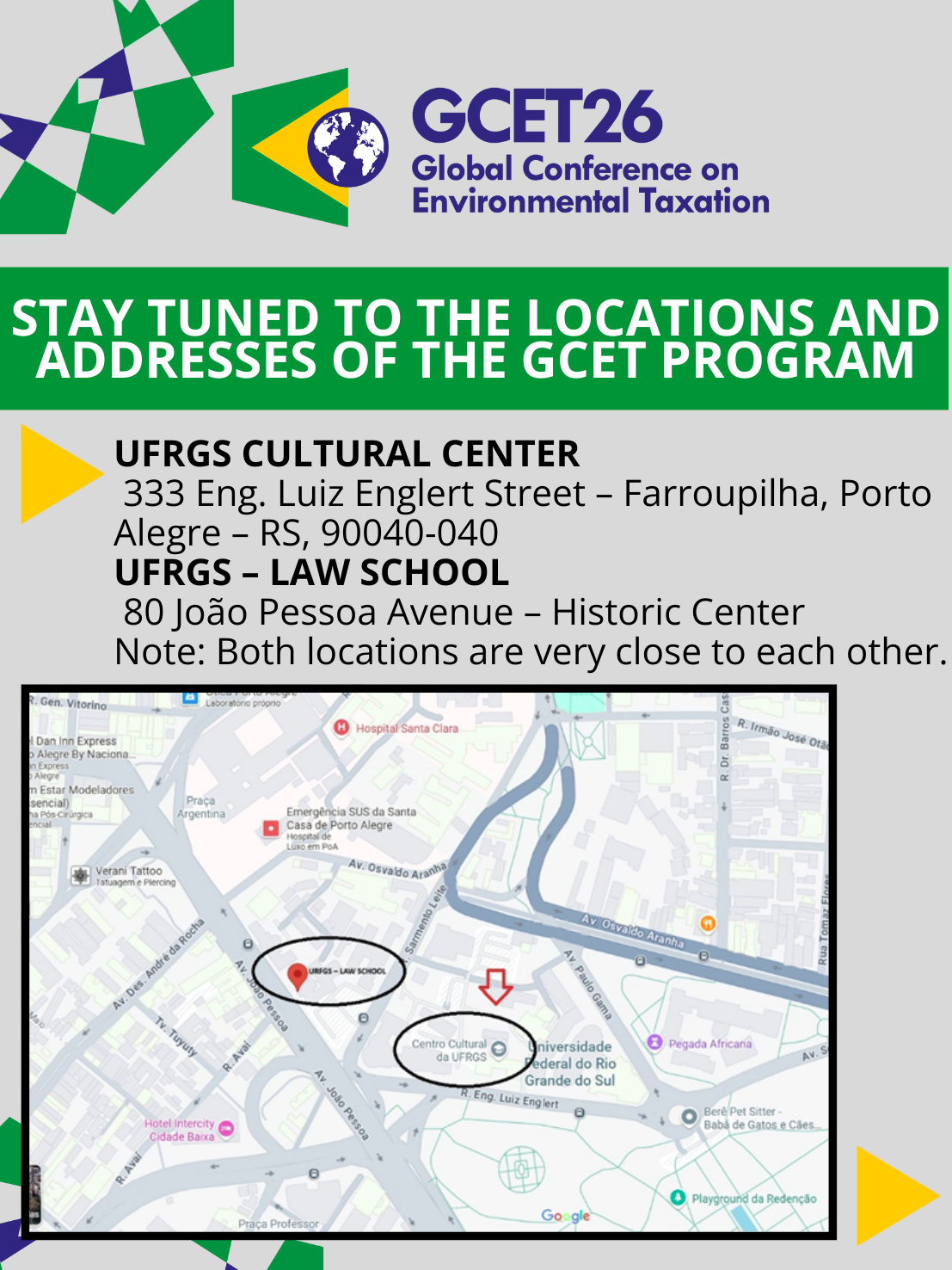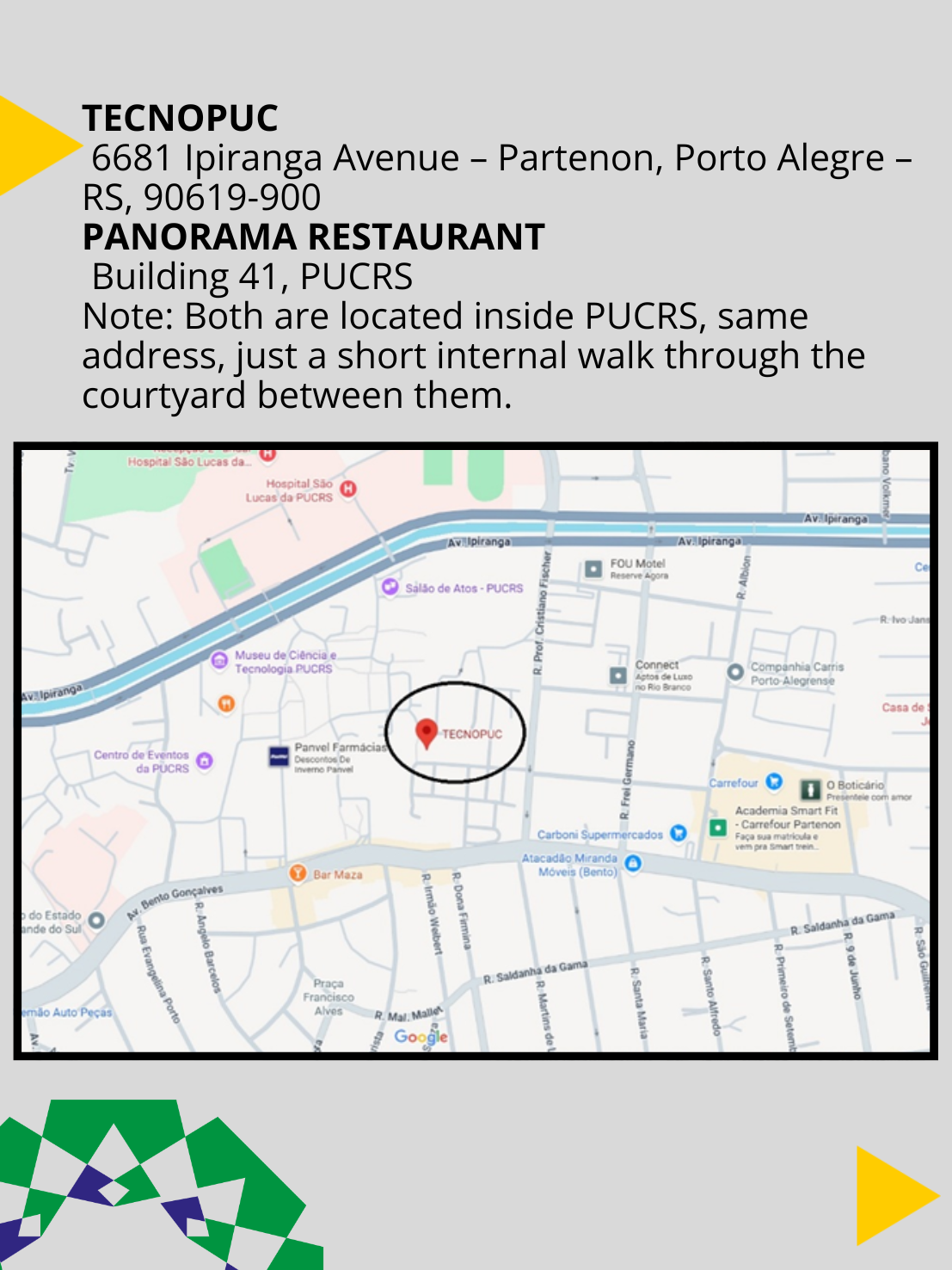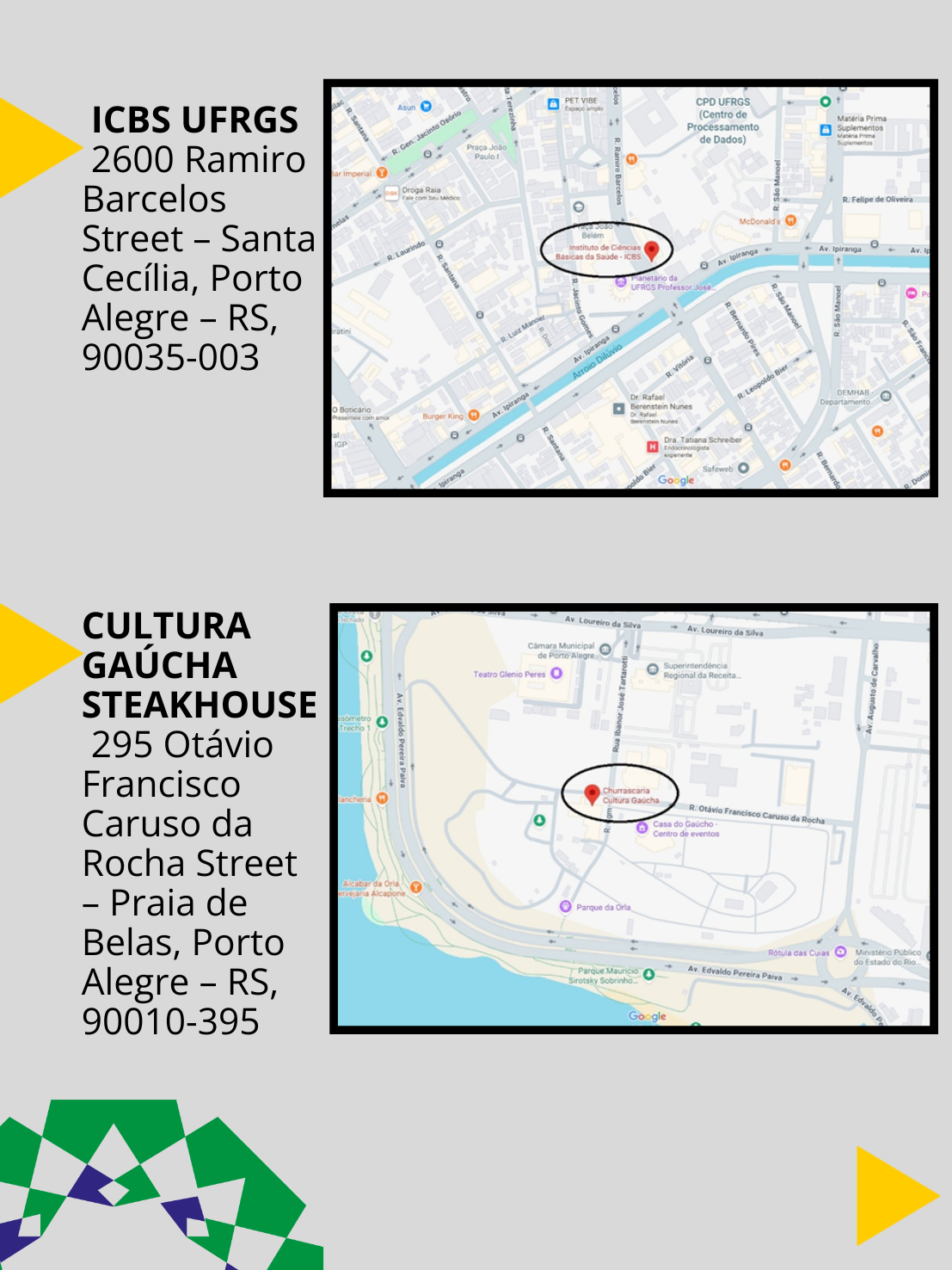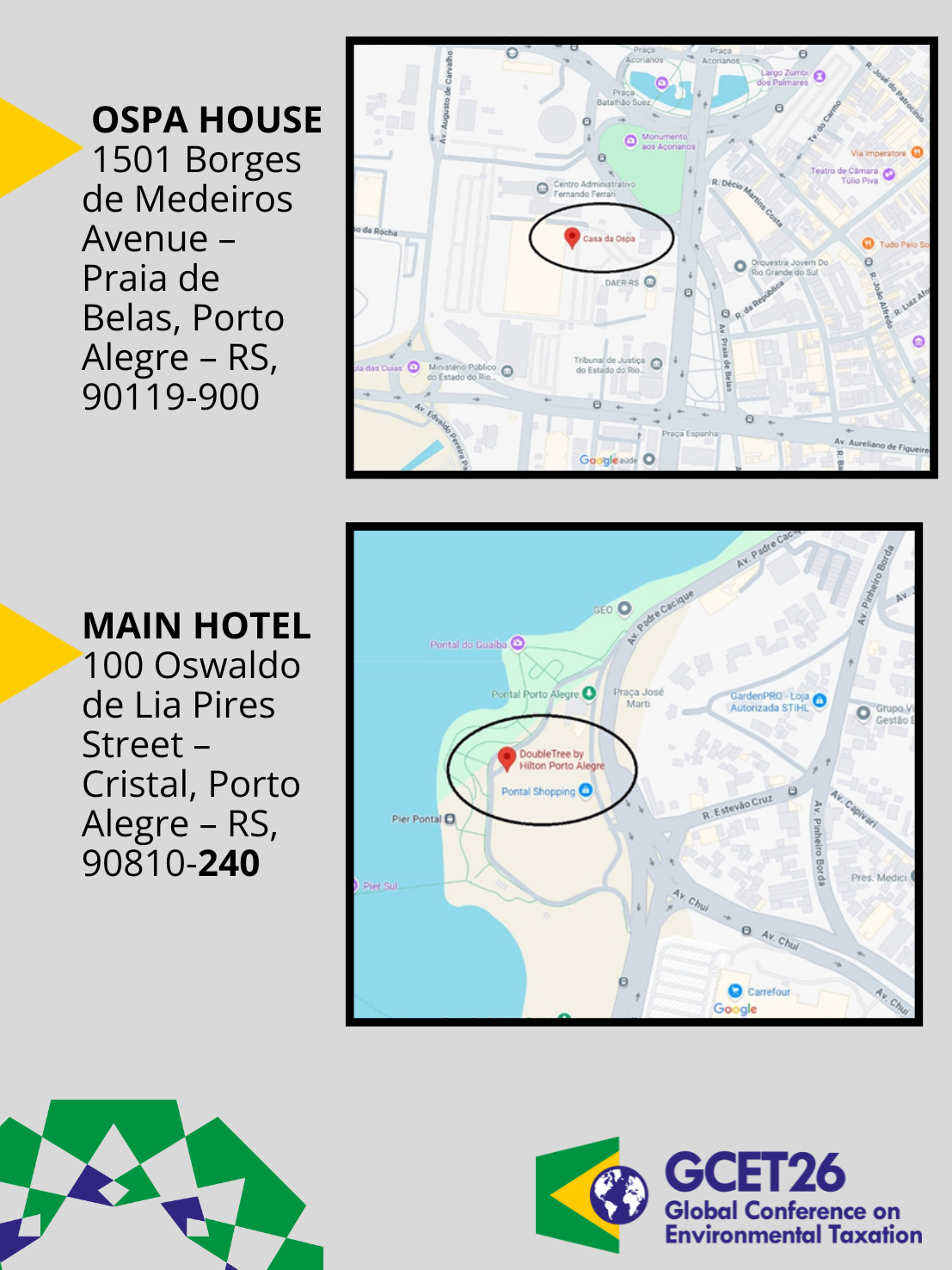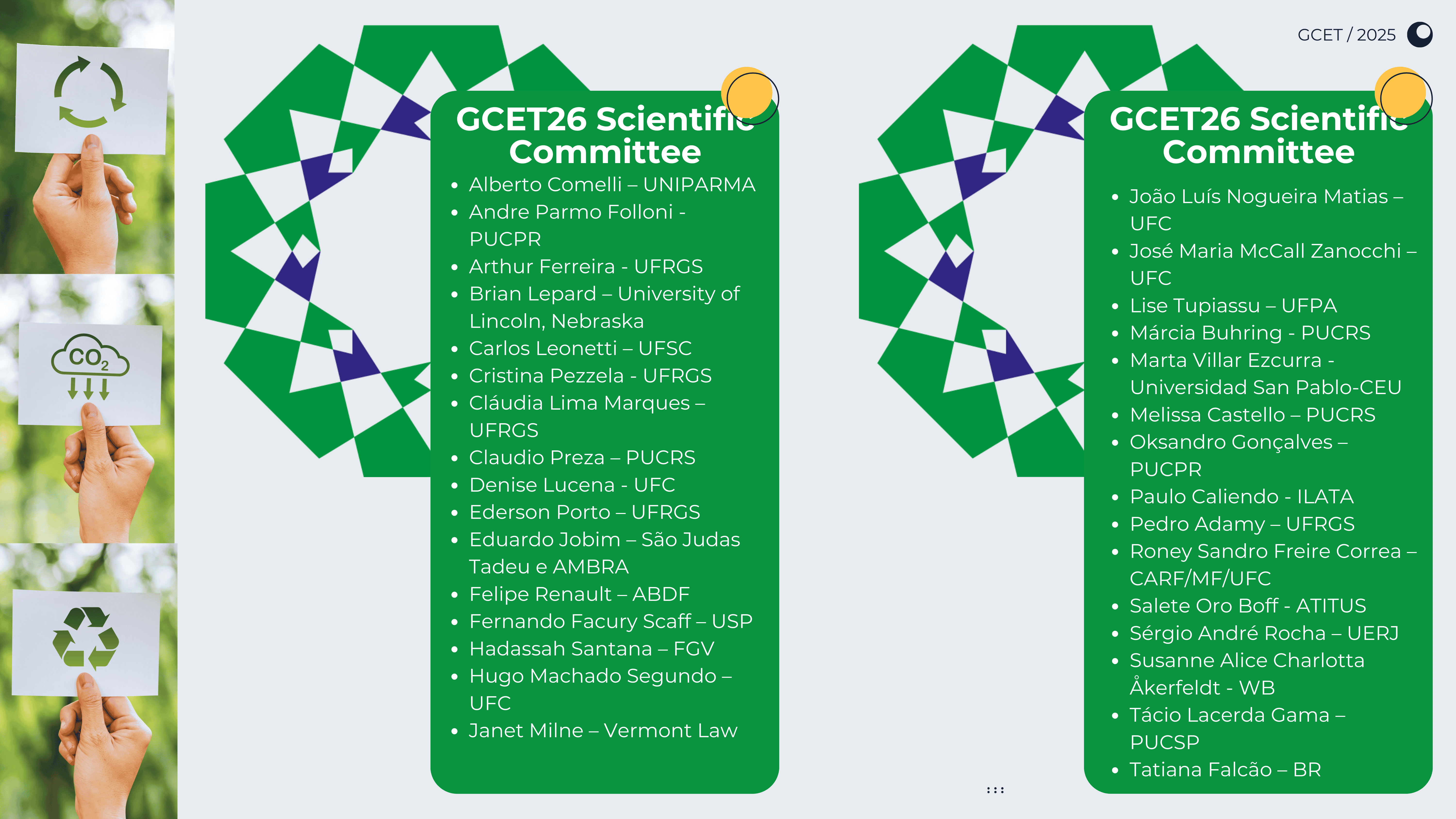 CALL FOR ABSTRACTS
CALL FOR ABSTRACTS
Attention! The deadline for abstract submissions has been extended to May 31st! Don’t leave it until the last minute! ⏳✍️
The Federal University of Rio Grande do Sul (UFRGS), Federal University
of Ceara (UFC), and the Latin American Institute of Environmental Taxation
(ILATA) invite the submission of abstracts for the 26th Global
Conference on Environmental Taxation (GCET26) to be held in person in Porto
Alegre, Brazil, from 24 to 26 September 2025.
The central theme of this year’s Global Conference on Environmental
Taxation (GCET), “Policies for Green and
Sustainable Financing”, highlights the urgency of reevaluating global
financial systems to address contemporary environmental and climate challenges.
The goal is to explore how public policies and economic instruments, such as
environmental taxes, green subsidies, and sustainable financing mechanisms, can
be leveraged to drive the transition toward a low-carbon and resilient economy.
The conference will bring together experts, academics, policymakers,
private sector representatives, and civil society to discuss and share
innovations and best practices from around the world.
We invite submissions on the following broad topics (but not limited
to):
●
Policy instruments and sustainable financing: global exchange of information
●
Sustainable cities
●
Carbon taxation
●
Emissions Trading Scheme - ETS
●
Carbon Border Adjustment Mechanism - CBAM
●
Green fiscal reform
●
Environmental protection through budgeting and green funds
●
Energy transition: costs and financing
●
Biodiversity protection
●
Environmental taxation, sustainability and human rights
The submission deadline is 31 May 2025. Abstracts will be accepted on a rolling basis, so that early notifications might be made, allowing participants to register early for the
conference.
Format and style of abstracts
Abstracts should not exceed 400 words. No figures, tables,
footnotes, endnotes or other references should be included in the abstract. Abstracts will be
submitted via website, by copying and pasting the text in the relevant
fields. Please also submit a short bio of up to 150 words with main
biographical details of the presenting author. These bios may be included in
the conference book of abstracts.
GCET26
Young Researcher Award
One of the key objectives of GCET is the promotion of junior
contributions and the fostering of state- of-the-art scientific research.
Accordingly, any student or researcher younger than 35 (as at 31 May 2025)
can be a candidate for the “GCET26 Young Researcher Award”.
To
submit your paper, you need to be registered in the participant area on our
website gcet26.com.br, please complete your registration as a participant and
create a login and password.
GCET26 BRAZILIAN STEERING COMMITTEE:
Prof. Denise Lucena Cavalcante
Federal University of
Ceará - Brazil
Prof. Artur Ferreira Neto
Federal University of Rio Grande do Sul -
Brazil
Prof. Paulo Caliendo
Latin American
Institute of Environmental Taxation/ILATA - Brazil
GCET INTERNATIONAL STEERING COMMITTEE:
Prof. Janet E. Milne
Vermont Law School – USA
Prof. Mikael Skou Andersen
Aarhus University - Denmark
Prof. Hope Ashiabor
University of New South Wales - Australia








